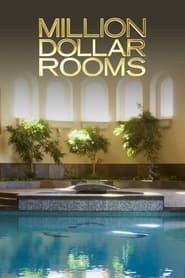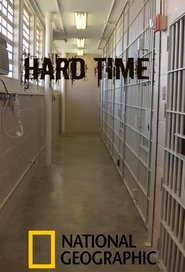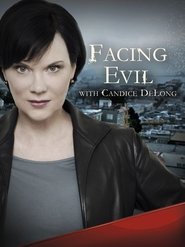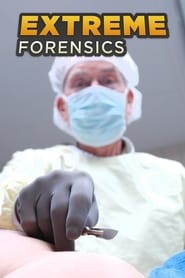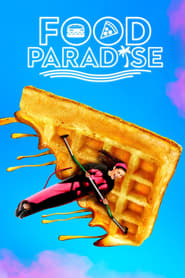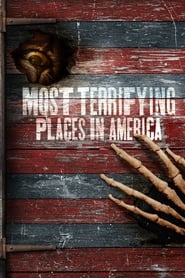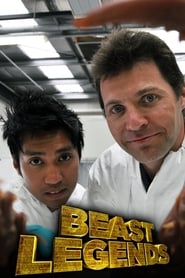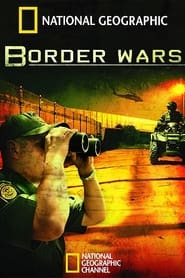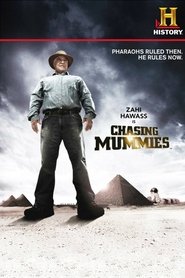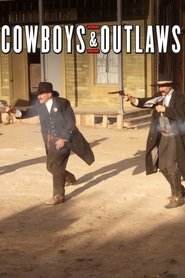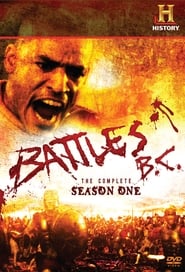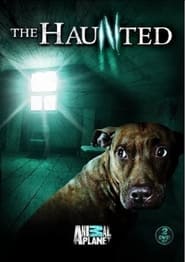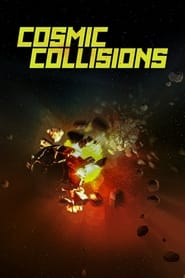Top Rated Documentary TV Series on Amazon Video - Page 82
-
How Sex Changed the World
2013
star 9How Sex Changed the World is a documentary series exploring how sex has changed history: from Ghengis Khan using it to expand the Mongol Empire to the survival of harems for thousands of years and even how Hoover used it to blackmail top level politicians. -
Million Dollar Rooms
2010
Million Dollar Rooms
2010
star 8The series gives viewers a look inside the most spectacular, one-of-a-kind, seven-figure spaces. It's the best in high-end design and lavish living around the globe, including a home with a full-size train and petting zoo in the backyard, one with a two-story custom closet worth $5 million, and an estate that features a nightclub inside. -
NY Med
2012
NY Med
2012
star 4Each episode toggles between the renowned surgeons of Manhattan's New York Presbyterian Hospital and the gritty world of trauma surgeons at Newark's University Hospital where the ER is a doorway to the mean streets of one of America's most violent cities. Sometimes poignant and often uproarious, this limited series takes a deep dive into high stakes medicine through the eyes of unforgettable characters, including a hilarious trio of returning ER nurses who must cope with tricky personal crises while caring for some of the nation's most bossy patients. Mehmet Oz rounds out the character roster with his extraordinary surgical skills on full display as his deft hands work to fix damaged hearts and save lives. -
The American Heritage Series
2009
star 7Discover the forgotten and astonishing story of our nation's foundation in the American Heritage Series. For centuries, Americans were taught a truthful view of history that recognized the Godly heroes and moral foundation our nation was founded upon. But in recent years, a new version of history has assaulted the moral and spiritual fiber of our nation, leaving the truth of our past eliminated and forgotten. Until today. From Separation of Church and State, to the Civil Rights Movement, the heroism of our founding Fathers to the building of our nation's monuments, this series will inspire every American to reclaim the Godly, true story of our nation. -
Hard Time
2009
Hard Time
2009
star 6.5Hard Time is an American reality-documentary television series on the National Geographic Channel. The series debuted on February 1, 2011 and is hosted by Thurston Moore as he sheds light on the daily life of the prisoners and guards at the Correctional Reception Center located in Orient, Ohio. -
Behind Mansion Walls
2011
Behind Mansion Walls
2011
star 6.5Behind Mansion Walls is an American documentary television series on Investigation Discovery that debuted June 6, 2011. The series, hosted by Christopher Mason, tells the stories of crime and investigation that are unveiled in wealthy families and relationships, with conspiracies, hidden accounts, false identities and secret affairs. It tells stories of murder and mystery on a grand scale. The victims and individuals involved in cases come from upscale levels of society, from oil tycoons to real estate moguls. -
The World According to Paris
2011
star 5.5The World According to Paris is an American reality documentary television series on Oxygen. The series debuted on June 1, 2011 and ran for one season. Oxygen decided to pass on a second season of the series. The series' eight-week run averaged only 293,000 viewers and a 0.2 rating among adults 18-49, making it Oxygen's least-watched series of 2011. -
Facing Evil with Candice DeLong
2010
star 7Former FBI profiler Candice DeLong interviews convicted killers from prison about their crimes. -
Extreme Forensics
2008
Extreme Forensics
2008
star 6Compelling cases, bizarre crime scenes, and criminal minds so conniving they defy understanding. In Solved: Extreme Forensics new, never-before seen forensic techniques are employed to solve the most puzzling of cases. Welcome to the next generation in forensic drama - it's raw, it's unbelievably riveting, and it's real. -
Food Paradise
2007
Food Paradise
2007
star 10A taste of America's one-of-a-kind dining experiences with the most mouthwatering and decadent specialties from around the country. -
Prehistoric Predators
2007
star 7.5Long before humans evolved, our planet was home to some of the most vicious predators ever to have lived. Step back in time to one of the most amazing eras in the history of planet earth and meet terrifying ancient predators. -
Most Terrifying Places in America
2019
star 9.5Viewers are taken on a tour across the U.S. to visit mysterious and spooky paranormal hot spots. Locations vary from world-famous businesses to humble homes, each with its share of ghost sightings and unexplainable phenomena. -
Beast Legends
2010
Beast Legends
2010
star 4.5Beast Legends was a science fiction mini-series produced by a Toronto and Leeds based independent film company called Yap Films, Inc. It was first shown on the Canadian History Channel in the summer of 2010 and was later aired on the US SyFy Channel, starting on September 9, 2010 and ending on October 14, 2010. The show followed a team of creative researchers and artists who explored the globe following stories of legendary and mythological beasts. As they investigate the history behind these tales, they study the ecology and biology of similar real-life creatures that may have inspired the stories, and conclude by bringing the beasts to life with computer generated effects and animation. -
Border Wars
2010
Border Wars
2010
star 7.5Border Wars is an American documentary television series on the National Geographic Channel. The program follows agents of the U.S. Border Patrol, U.S. Customs and Border Protection, Immigration and Customs Enforcement, and other divisions of the Department of Homeland Security as they investigate and apprehend illegal aliens, drug smugglers, and other criminals violating immigration to the United States and customs laws. The series also follows Air Interdiction Agents, and Marine Interdiction Agents who patrol along the U.S.-Mexico border, as well as southern Florida and Puerto Rico. -
Chasing Mummies
2010
Chasing Mummies
2010
star 1.5Chasing Mummies: The Amazing Adventures of Zahi Hawass is a reality television series which is airing on The History Channel in the United States. Produced by Boutique TV, this series depicts the adventures of archaeologist and Egyptologist Dr. Zahi Hawass and his discoveries in Egypt as he is followed by young archeological fellows and a camera crew. The series began on Wednesday, 14 July 2010 and aired Wednesdays at 10pm on the History Channel. The shows illustrates the complexities in the almost never-ending quest to preserve and discover artifacts from ancient Egypt. -
Cowboys and Outlaws
2009
Cowboys and Outlaws
2009
star 10Cowboys and Outlaws is a documentary series on The History Channel that details key figures and events in the history of the American West in the latter half of the 19th century. It uses dramatic reenactments, historian interviews and forensic evidence to highlight famous figures such as Billy the Kid, Wyatt Earp and Tom Horn. It also covers historical events such as the first drive along the Goodnight-Loving Trail and the transformation of Abilene, Kansas from a small settlement into a major cattle town. As of February, 2010, only six episodes have aired. A DVD collection was released on January 26, 2010. -
Battles BC
2009
Battles BC
2009
star 7.5Battles BC is a 2009 documentary series looking at key battles in ancient history. The show was known for its very gritty nature, visual effects similar to the movie 300 and its highly choreographed fight scenes with various weapons. -
The Haunted
2009
The Haunted
2009
star 6.8The Haunted is an American paranormal television series that premiered on November 22, 2009 on Animal Planet. Produced by Picture Shack Entertainment, the program features ghost stories and paranormal investigations involving animals. It also incorporates actual footage and photographs from the famiilies and paranormal research teams involved. -
Women Behind Bars
2008
-
Cosmic Collisions
2009
Cosmic Collisions
2009
star 6.5The new digital show Cosmic Collisions launches you on a thrilling trip through space and time to explore the astronomical impacts that drive the dynamic and continuing evolution of the universe. From subatomic particles to the largest galaxies, cosmic collisions are a universal force of nature.
 Netflix
Netflix
 Amazon Prime Video
Amazon Prime Video
 Apple iTunes
Apple iTunes
 Apple TV Plus
Apple TV Plus
 Disney Plus
Disney Plus
 Google Play Movies
Google Play Movies
 Paramount Plus
Paramount Plus
 Hulu
Hulu
 HBO Max
HBO Max
 YouTube
YouTube
 fuboTV
fuboTV
 Peacock
Peacock
 Peacock Premium
Peacock Premium
 Amazon Video
Amazon Video
 The Roku Channel
The Roku Channel
 AMC+
AMC+
 Kocowa
Kocowa
 Hoopla
Hoopla
 The CW
The CW
 Vudu
Vudu
 Starz
Starz
 Showtime
Showtime
 PBS
PBS
 Pantaflix
Pantaflix
 FXNow
FXNow
 Tubi TV
Tubi TV
 Kanopy
Kanopy
 Comedy Central
Comedy Central
 Crunchyroll
Crunchyroll
 Microsoft Store
Microsoft Store
 Redbox
Redbox
 Sun Nxt
Sun Nxt
 ABC
ABC
 DIRECTV
DIRECTV
 Crackle
Crackle
 Fandor
Fandor
 Plex
Plex

